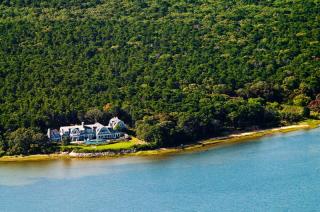In the fullness of time, coastal scientists say, Martha’s Vineyard will disappear back into the ocean and new islands will form on what is now Georges Bank. It is part of a grand cycle of sediment redistribution, where land is not lost, but simply transported from one spot to another.
Harris Poll
2013
Martha’s Vineyard residents are here for the outdoor lifestyle, rural character, beaches and coastline, and they stay for the sense of community on the Island. They are happy with their volunteer fire departments, their emergency services, their hospital and their police squads.
The Martha’s Vineyard Commission has an important role to play when it comes to planning and protection of the Vineyard environment, a majority of people polled by the Vineyard Gazette Harris Interactive survey said.
The commission was singled out for special questioning in the survey which polled more than 500 seasonal and permanent residents on issues ranging from quality of life to cell phone service.
The Vineyard was a different place 25 years ago.
The Martha’s Vineyard Land Bank was barely two years old. The Martha’s Vineyard Commission, a unique regional planning agency founded by an act of the Massachusetts legislature with special powers to plan and regulate development, was a little more than a decade old. These were the late Reagan years and the national economy was booming, as the U.S. had entered one of the longest periods of sustained economic growth since World War II.
In the late 1980s, with real estate prices on the rise and new building starts at an all-time high on Martha’s Vineyard, the Gazette commissioned a poll of seasonal and permanent residents to gauge public sentiment around development. The results revealed a deep and widely-held concern about the fast pace of growth and its implications for the Island environment and quality of life, a concern that cut across every demographic category, part-time and full-time residents alike.





